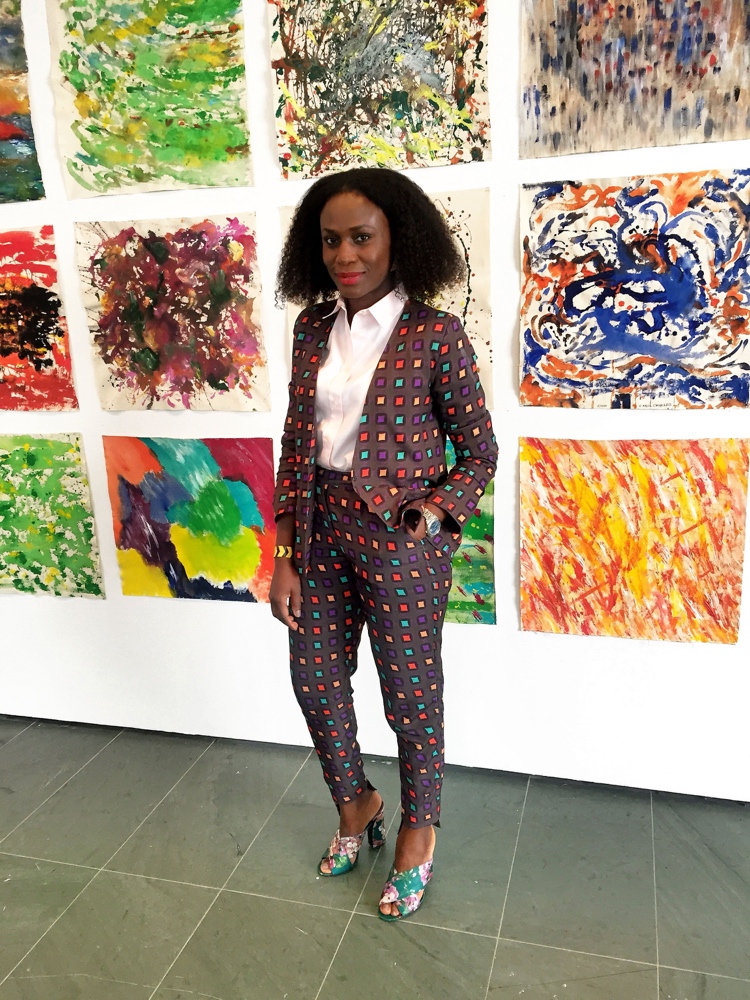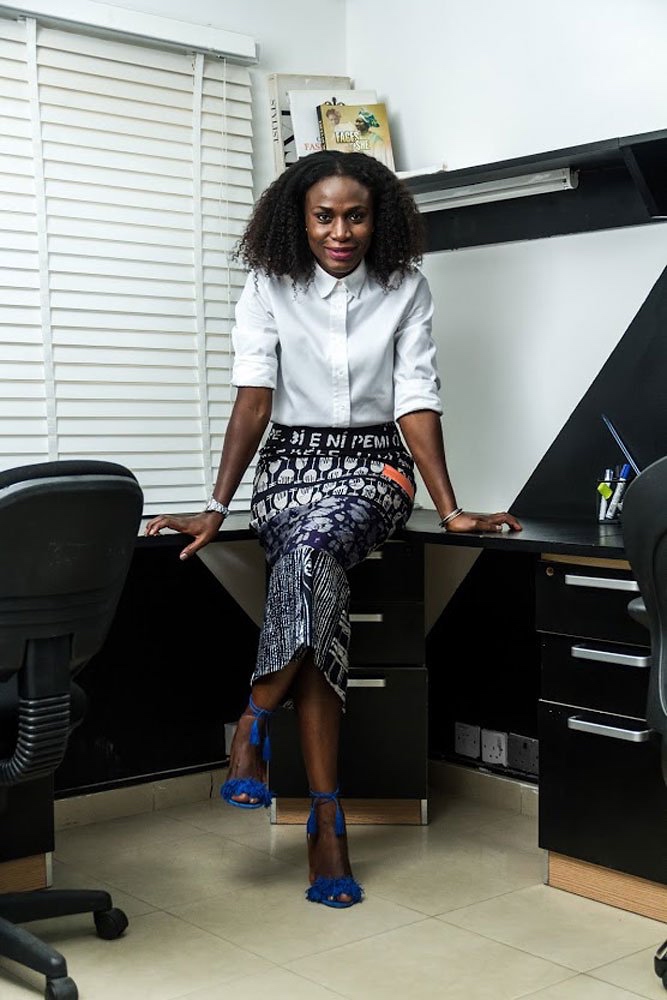Style
African Prints With a Dose of Céline, Vogue.com Profiles Omoyemi Akerele’s 9-5 Style
Vogue.com speaks so highly of Omoyemi Akerele, founder of Lagos Fashion and Design Week and how she “has worked tirelessly to put Nigerian fashion on the map… Akerele highlighted the potential impact of fashion and retailing on the country. And she did it all, naturally, with remarkable personal style.”
Omoyemi on her earliest fashion/style memory,
“If I had an interest in fashion growing up, I’m not sure I was aware of it. However, I have always been conscious of what I wear and how I wear it. When we were toddlers, my mum dressed my sisters and me in matching frocks complete with tie-back details and high-neck ruffles. My first fashion memory would have to be me breaking my dear mum’s heart at age 11 by telling her that the beautiful dresses she’d bought wouldn’t work and I was craving some normal dress-down clothes: jeans, T-shirts, skirts, and shirts. We eventually reached a compromise and shelved the dresses for Sundays and occasionwear. She was happy and I was beyond happy!”
When speaking on her workwear and the need for structure,
“This requires my basic business uniform: tailored shift dresses or my favorite shirt and skirt combo with a blazer. Separates are the backbone of my closet—they create endless opportunities for mixing and matching, which in turn helps to vary my dressing-up choices. Though I love the flexibility and freedom of expression that comes with the job, over the years I’ve come to accept that my foundational years working in a law firm still influence the way I dress to a considerable extent. There’s always a need for an element of structure.”
What’s next for African fashion according to Omoyemi Akerele?
“At Style House, we work tirelessly to position Lagos and Nigeria on the global fashion map as well as grow, nurture, develop, and act as catalysts for building a commercially sustainable industry out of Nigeria. The lack of infrastructure in place makes it a more tedious process—not just for us in the production and execution of our initiatives, but for the designers as well. It makes their creative process very expensive and, in return, the accumulated cost is transferred to the end user. We are currently working with the Nigerian Export Promotion Council to create opportunities for capacity building and skills development, especially for the garmenting sector.”
Read more on the interview here, to find out more about her style with shoes and accessories and how she mixes Nigerian brands with foreign luxury brands we know and love, like Maki Oh and Lisa Folawiyo in with Céline and Chloé.
























